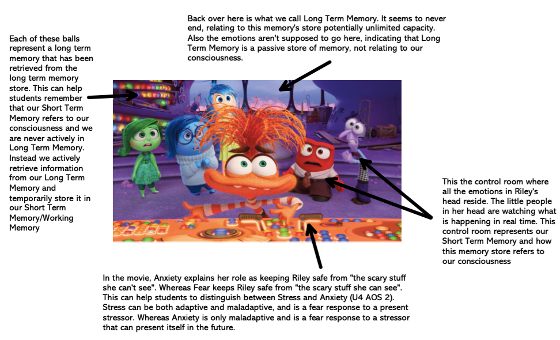Hi there,
My name is Kayla and I’m a VCE Psychology tutor at Learnmate. I graduated in 2020 with a study score above 40 in ALL 5 of my year 12 subjects, and I'm here to share with you some of my effective VCE Psychology study tips that helped me, and have since helped my students, achieve this!
If you're struggling to retain VCE Psychology content, know that you're not alone. Many students face challenges in remembering everything they learn, especially under the stress of a SAC setting. In this blog, we explore effective strategies to help you remember and apply the content more efficiently.
Understanding the Challenges of Learning
One of the most common issues my VCE Psychology students tell me is, "Kayla, I understand the content you’re teaching me, but I’m finding it hard to remember everything, particularly when I am under stress in a SAC setting." As a former VCE student myself, I can totally relate. Learning is challenging!
After enduring many gruelling neuroanatomy classes at university and having been a Psychology tutor for a while now, I have gained a good understanding of how the brain functions and how learning takes place.
I like to describe the brain as an intricate and complex mind map where each neural cell is interconnected, containing a vast collection of memories accumulated throughout a person's lifetime. Neurons are not just stand-alone cells, they establish interconnected links with adjacent neurons, creating a network that spans across different regions of the brain and body.
Utilising Contextualised Learning
Consequently, the most effective approach to learning is to utilise the brain's structure and establish CONNECTIONS. We call this type of learning Contextualised Learning. Contextualised Learning occurs when a student attaches new information that they learn with their own prior knowledge and experiences already stored in Long Term Memory. In VCE Psychology, this technique is called Elaborative Rehearsal, and it is one of the most effective methods of getting information into Long Term Memory and keeping it there!
Linking New Information with Movies
One way I like to learn is by linking new information with movies. The movie Inside Out is among my all-time favourite films. It provides an excellent depiction of memory processes in the brain, which is why I refer to it in my sessions to help students contextualise the content.
For instance, I use this movie to help students understand “The Atkinson Shiffrin Model” (Unit 3, AOS 3). Let's consider a scene from the movie to understand both Short Term and Long Term Memory.

Source: https://www.nytimes.com/2024/06/14/well/mind/inside-out-2-anxiety.html
For Example: Short Term Memory is an active store of memory and refers to our consciousness, specifically, every thought, feeling, and perception we are experiencing right now. It is the only active memory store and to recall information or a memory, we retrieve it from our Long Term Memory and temporarily store it in our Short Term Memory. To remember this, I encourage students to envision the control room from Inside Out. The main control room, where all of the characters reside and control Riley's thoughts, feelings, and perceptions in real time, reflects our Short Term Active Memory/our consciousness. The characters do not reside in the warehouse behind them, thus Long Term Memory is a passive memory store.
Enhancing Memory Retention
All in all, to enhance your ability to store new information in your Long Term Memory, you need to make connections and increase the relevance of this information. When we link information to past experiences and knowledge already stored in Long Term Memory, such as scenes from a movie, we make the information more meaningful and are more likely to remember it.
Conclusion
Contextualising your learning is a powerful strategy to assist in deep processing and retention for later recall. By making connections between new information and your existing knowledge or experiences, you can significantly improve your memory retention. Whether you link content to a favorite movie, a past experience, or a book, incorporating these techniques can help you excel in VCE Psychology.
For more tips on effective learning strategies and to connect with expert VCE Psychology tutors, visit Learnmate.
This blog was written by Kayla C a tutor on Learnmate for VCE Psychology and VCE Health & Human Development. Kayla is a highly experienced tutor who has been helping VCE students achieve their potential since graduating in 2020. Kayla supports her students with a plethora of comprehensive resources, including notes, practice questions, tips and 7-day support. You can view her profile, including her stellar reviews and, subject to her availability, request Kayla as your tutor here.




